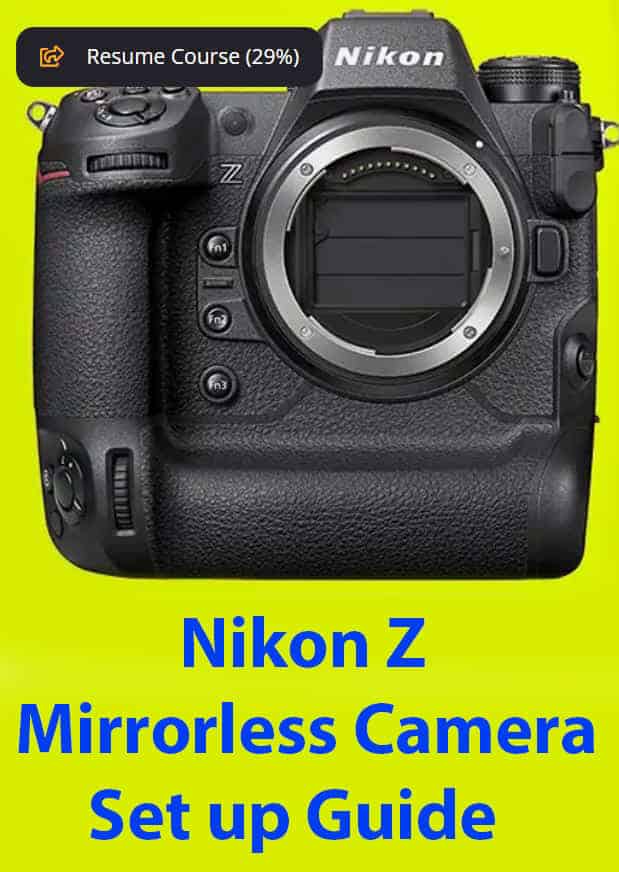Your guide to CFexpress cards that provide the best value while still being fast enough to meet the demands of today’s high-resolution cameras for long bursts and 8k video.
Which CFexpress cards provide the best value?
- Angelbird 4TB MK2 CFexpress – $.45 per GB
- Angelbird 2TB MK2 CFexpress – $.48 per GB
- Angelbird 1TB MK2 CFexpress – $.48 per GB
- Prograde Cobalt 650GB CFexpress – $1.12 per GB
- Angelbird 160GB SX CFexpress – $1.12 per GB
- Prograde Cobalt 325GB CFexpress – $1.32 per GB
- Delkin Black 512GB CFexpress – $1.37 per GB
- Angelbird 330GB MK2 CFexpress – $1.45 per GB
- Angelbird 660GB MK2 CFexpress – $1.45 per GB
Only CFexpress cards advertising a minimum sustained write speed of 1300 MB/s or faster have been included in this list.
For those of you thinking about purchasing a memory card or other gear please consider using the links provided in this post or my affiliate link to B&H . I receive a small commission to support my content creation efforts and there is no extra cost to you.
CFexpress Card Performance Matters
Today’s high resolution cameras like the Nikon Z9, Canon R5 and Sony A1, with burst rates of 20 and 30 frames per second at 45 megapixels demand fast CFexpress cards. For wildlife and sport shooters buying the right card can make or break capturing that decisive moment.
Tables have been included below which show CFexpress cards that meet minimum sustained write speeds of 1300 MB/s with the corresponding burst rates, shot capacity and cost per GB. The data should guide you in purchasing a CFexpress card that meets your requirements and allow you to get the biggest bang for the buck.
Burst Rate Testing Video
I have performed burst rate tests on the Angelbird 160GB SX, 330GB AV Pro MK2, 2TB AV Pro MK2 and Prograde Cobalt 325GB cards with the Nikon Z9. Additional burst tests were performed in the field testing on the Canon R3 with the Angelbird 330 MK2 and on the Canon R5 with the Angelbird 160GB SX card.
Once you have finished reading this post, I recommend you watch the companion video. It captures both the in-office burst rate tests along with my field testing by shooting birds in flight to see when I ran up against the buffer. It also provides detailed tables for each card’s performance in terms of burst rates in lossless compressed and high efficiency *, number of shots that can be taken in each format, recording times for 4k30p, 8k30p and 8k60p and finally the cost per Gigabyte for each card.
Best Value For Fast CFexpress Cards 2022 | Field Tested on Nikon Z9 Canon R5 Canon R3.
Let’s start by answering the two questions that I receive most.
What CFexpress cards are the best value?
The Angelbird 1TB, 2TB, and 4TB are the best value CFexpress cards with a minimum sustained write speed of 1300 MB/s, excellent build quality, and a cost of $.45/$.48/$/48 per GB respectively which is the lowest in its class for this size of card.
What is the best low-budget CFexpress card?
The Angelbird 160GB AV PRO SX is the most affordable CFexpress card with a minimum sustained write speed of 1480 MB/s, excellent build quality, and a cost of $1.12 per GB which is the lowest in its class for this size of card.
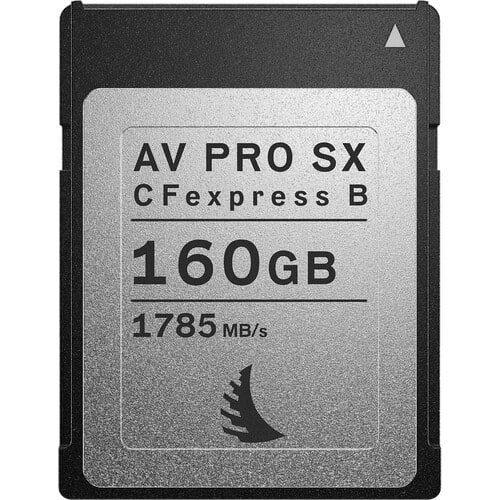
How To Select The Best CFexpress Card.
There are four things you should care about when selecting a CFexpress card.
- A minimum sustained write speed of 1300 MB/s or higher
- Manufacturer build quality claims and few user issues reported
- Low cost per gigabyte
- Three-year warranty or better
The first point regarding speed applies to the Nikon Z9, Canon R5, Sony A1 or any other high-resolution camera with frame rates of 20 FPS or more and where shooting action with long bursts is a requirement. Bullet points 2,3,4 applies to all cameras.
Minimum Sustained Write Speed
Why is the minimum sustained write speed of 1300 MB/s so important? If you shoot wildlife or sports you will find yourself taking long bursts to capture all of the action.
The minimum sustained write speed of your CFexpress memory card will dictate how quickly that burst of images can be written to the card. If the card can not keep up to the data being transferred, the buffer fills more quickly. What was 20 or 30 frames per second when you started shooting slows to a rate that will quickly leave you very frustrated having missed key moments in the action.
There are type A and type B CFexpress cards. If you’ll be shooting action with bursts you’ll want a type B card with a minimum sustained write speed of 1300 MB/s. Don’t be fooled by the labels on the cards that state maximum read and write speeds.
The only thing that matters from a shooting perspective is MINIMUM SUSTAINED WRITE SPEED. You will need to dive into the fine print to find that information and a few manufacturers never state it, avoid those cards.
Build Quality
This is a tougher one to find information on, however, I am more apprehensive about buying memory cards that are mass-produced in China when it comes to quality assurances.
I recommend you go to the manufacturer’s website to see what statements they make regarding build quality. The statement below on the Angelbird website is one of the reasons that I am confident with the build quality of their CFexpress cards.
Angelbird Made In Austria
“We handle all aspects of the supply chain from designing and engineering, to assembling and testing, directly from our office in Austria to assure that the product in your hands is the highest quality possible.”
You’ll understand why build quality is important the moment one of your cards encounters a defect and your priceless images are lost. Just know that not all CFexpress cards are created equal so it pays to educate yourself.
Cost Per Gigabyte
If this is the first time you’re shopping for a CFexpress card you’re now realizing that these cards are crazy expensive when compared to the XQD or SD cards.
The tables I have prepared below will provide you with a cost comparison across three well-respected brands. As you’ll see, there’s quite a difference in cost per GB across the brands and all of these cards come highly recommended.
When it comes to cost per GB, the Angelbird cards are ahead of their competitors while also offering larger card sizes for those that require the additional storage.
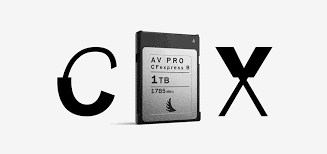
Speed, Size & Cost
The tables that follow will allow you to assess which CFexpress card is right for your type of shooting based on speed, size and cost per gigabyte.
I have selected three brands that have been recommended across CFexpress card reviews, user feedback in forums and my own personal use in the case of Angelbird and Prograde.
Follow this link to B&H to get a single view of all the “CFexpress Cards Reviewed” in this post.
Follow this link to Amazon Canada for a view of CFexpress cards that are available in Canada from Amazon.
| Brand | Min Sustain Write | Size | Cost USD | Cost Per GB |
| Angelbird 160 SX | 1480 MB/s | 160 GB | $179.99 | $1.12 |
| Angelbird 330GB MK2 | 1480 MB/s | 330 GB | $479.99 | $1.45 |
| Angelbird 660GB MK2 | 1480 MB/s | 660 GB | $959.99 | $1.45 |
| Angelbird 1TB MK2 | 1300 MB/s | 1 TB | $479.99 | $.48 |
| Angelbird 2TB MK2 | 1300 MB/s | 2 TB | $959.99 | $.48 |
| Angelbird 4TB MK2 | 1300 MB/s | 4 TB | $1799.99 | $.45 |
Here’s a B&H link to the Angelbird CFexpress Cards listed above
| Brand | Min Sustain Write | Size | Cost USD | Cost Per GB |
| Delkin Black 128GB | 1710 MB/s | 128 GB | $229.99 | $1.80 |
| Delkin Black 256GB | 1400 MB/s | 256 GB | $379.00 | $1.48 |
| Delkin Black 512GB | 1405 MB/s | 512 GB | $699.99 | $1.37 |
Here’s a B&H link to all Delkin Black CFexpress Cards listed above
| Brand | Min Sustain Write | Size | Cost USD | Cost Per GB |
| Prograde Cobalt 325 | 1400 MB/s | 325 GB | $429.99 | $1.32 |
| Prograde Cobalt 650 | 1400 MB/s | 650 GB | $729.99 | $1.12 |
Here’s a B&H link to both Prograde Cobalt CFexpress Cards listed above
| Angelbird Card | # Shots Lossless | # Shots HE* | # Bursts Lossless | # Bursts HE* |
| Angelbird 160 SX | 1,700 | 4,200 | 74 | 206 |
| Angelbird 330GB MK2 | 3,600 | 8,600 | 73 | 214 |
| Angelbird 660GB MK2 | *7200 | *17,200 | *73 | *214 |
| Angelbird 1TB MK2 | *11400 | *26,750 | *71 | *178 |
| Angelbird 2TB MK2 | 22,800 | 53,500 | 71 | 178 |
| Angelbird 4TB MK2 | *45,600 | *107,000 | *71 | *178 |
| Angelbird Card | 4K 30 H.265 10 bit | 8K 30 H.265 10 bit Time | 8K 60 N-RAW 12 bit |
| Angelbird 160 SX | 01h33m | 00h44m | 00h03m |
| Angelbird 330GB MK2 | 03h13m | 01h31m | 00h07m |
| Angelbird 660GB MK2 | *06h26m | *0302m | *00h14m |
| Angelbird 1TB MK2 | *10h00m | *04h43m | *00h23m |
| Angelbird 2TB MK2 | 20h01m | 09h26m | 00h46m |
| Angelbird 4TB MK2 | *40h02m | *18h52m | *01h32m |
| Prograde Cobalt 325 | 03h10m | 01h29m | 00h07m |
* Data that was extrapolated and not tested
CFexpress Card Reader
If you’re purchasing an Angelbird CFexpress card you will want to pick up the Angelbird CFexpress card reader. This is a must have because Angelbird provides firmware upgrades for their CFexpress cards and you must have their reader to perform these upgrades.
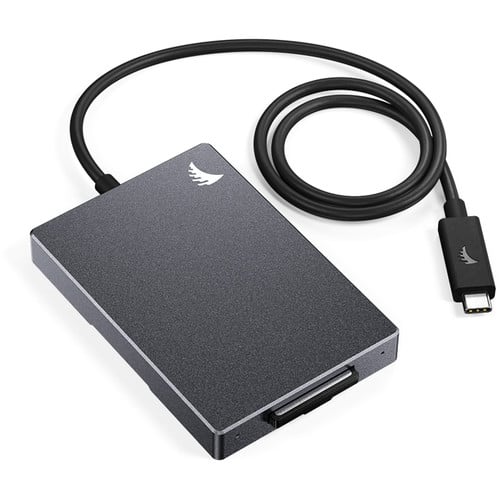
There are no worries regarding compatibility with other brands of CFexpress cards, this reader will read all other CFexpress cards. You can read all of the specs regarding the reader by following the link above.
What you’ll really care about is that the card is capable of transfers at 20 Gb/s and is USB 3.2 Gen 2×2 with a USB Type-C to Type-C cable and a USB Type-C to Type-A adapter provided. The reader is also physically compatible with Thunderbolt 3/4 and USB backward compatible.
Here’s an example of what an Angelbird firmware update announcement looks like. They provide a firmware upgrade tool for both Windows and Mac to manage the process.
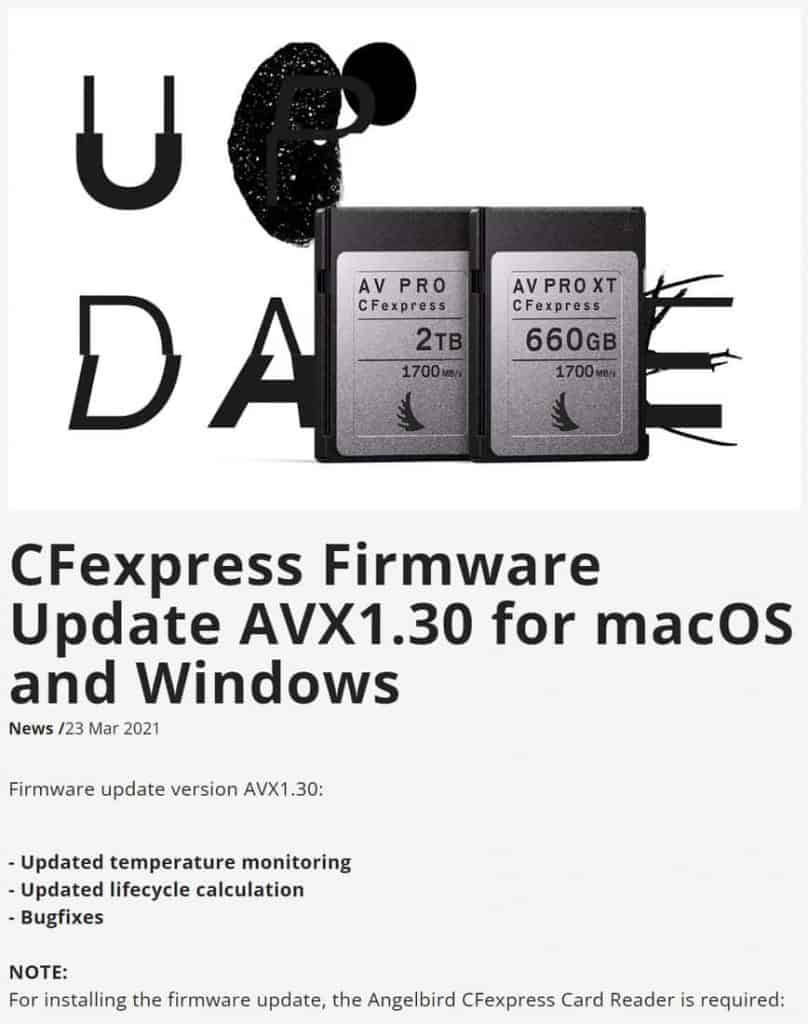
Angelbird CFexpress MK2 & SX Spec Sheets
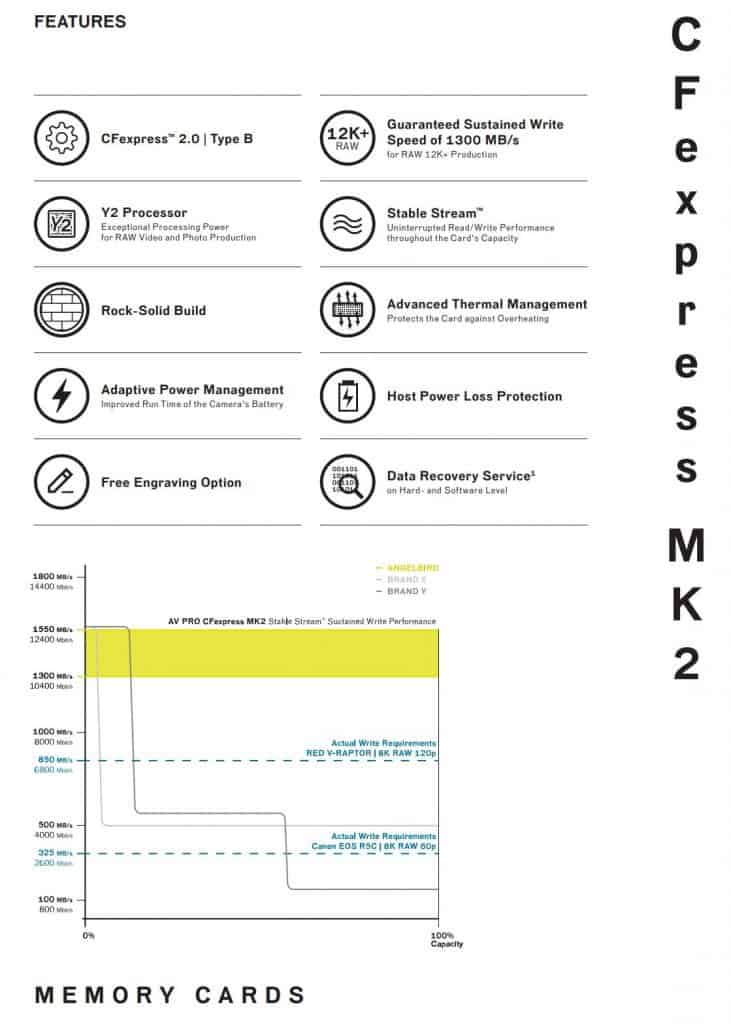
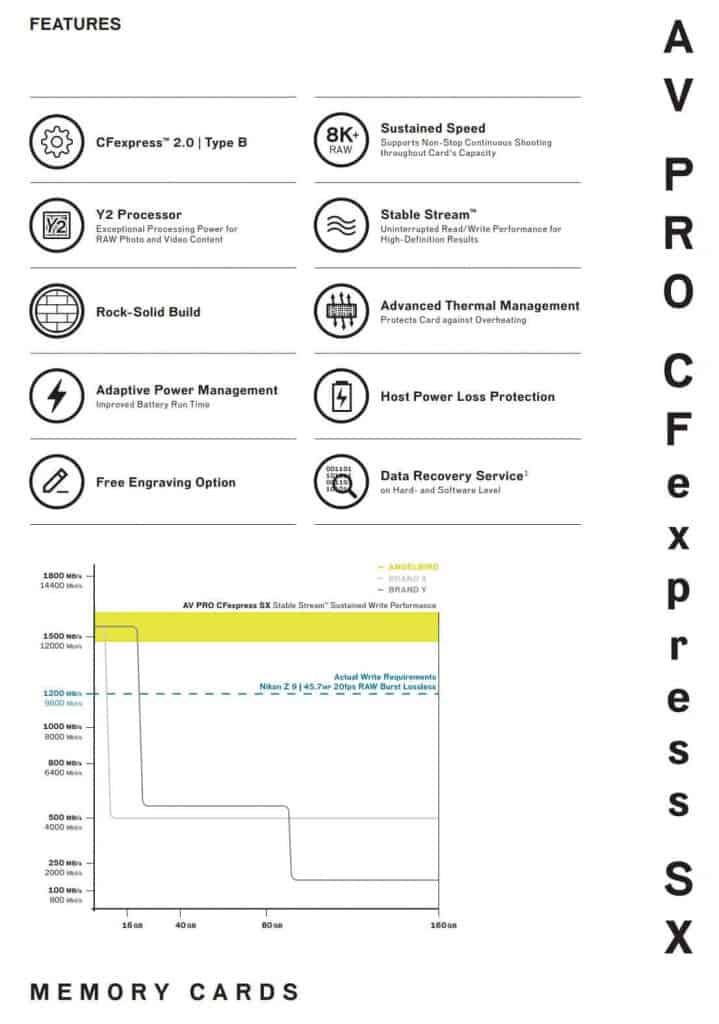
Note: The only reason the Angelbird 160GB SX card is not shown to be rated for 12k video is due to its capacity only being 160GB.
Conclusion
From my burst rate testing and cost per Gigabyte analysis I highly recommend the Angelbird CFexpress cards. They provide the minimum sustained write speeds required for long bursts on high frame rate, high megapixel cameras.
They are manufactured in-house which I deem to be a plus and have thus far been very reliable in the testing that I have performed.
Perhaps the best reason to consider Angelbird is the price. Compared to the competition there is no other brand that can touch them when it comes to the larger cards. With a cost per GB as low as $.45, that’s 1/3 of the next best brands price.
If you plan to shoot 4k/8k video or travel without the option to offload your cards that makes these larger Angelbird cards a no brainer. If you don’t require vast amounts of storage, but still need the speed at an affordable price, the 160SX card running @ 1480MB/s is the best choice available.







